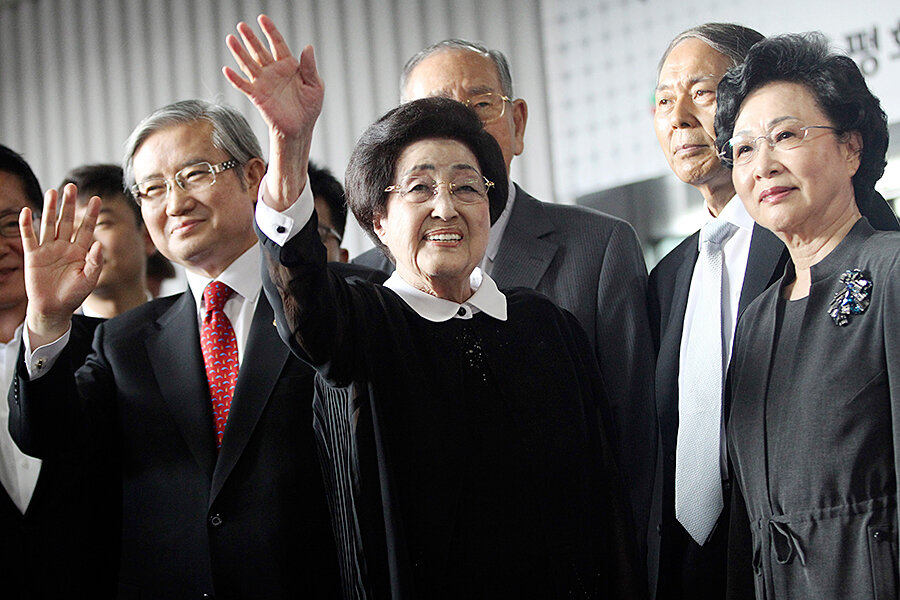Former South Korean first lady's visit to North raises hope to ease tensions
Loading...
| Pyongyang, North Korea
The 92-year-old widow of late South Korean President and Nobel Peace Prize laureate Kim Dae-jung arrived in North Korea on Wednesday for a four-day visit.
According to Lee's official itinerary, she will visit a maternity clinic, an orphanage and a children's hospital. Aides say it is not clear if she will meet top North Korean officials, such as leader Kim Jong-un, before returning to Seoul on Saturday.
Last year, Kim Jong-un invited Lee to visit after thanking her for sending condolence flowers on the third anniversary of the death of his father.
Relations between the Koreas have been testy in recent months over the opening of a U.N. office in Seoul tasked with monitoring North Korea's human rights situation and the North's refusal to release several South Koreans detained there.
There are hopes among some South Koreans that Lee Hee-ho's trip could help ease the tensions.
"Lee hopes that her visit paves the way for more dialogues, exchanges and cooperation" between the Koreas, Kim Sung-jae, a former South Korean culture minister who is part of Lee's delegation, told reporters at a Seoul airport before boarding a flight to Pyongyang.
Kim Dae-jung, who died in 2009, was a strong supporter of rapprochement with Pyongyang and held landmark inter-Korean summit talks in 2000 with Kim Jong Un's father and late North Korean leader, Kim Jong Il.
He won the Nobel Peace Prize later in 2000 for his efforts.
The summit talks spawned a flurry of cooperation projects, but most of them have been put on hold since conservatives took power in Seoul in 2008 and ended big aid shipments to North Korea.
North Korea is particularly keen on reopening the country to South Korean tourists, along with pursuing business and investment deals with its more affluent southern neighbors.







